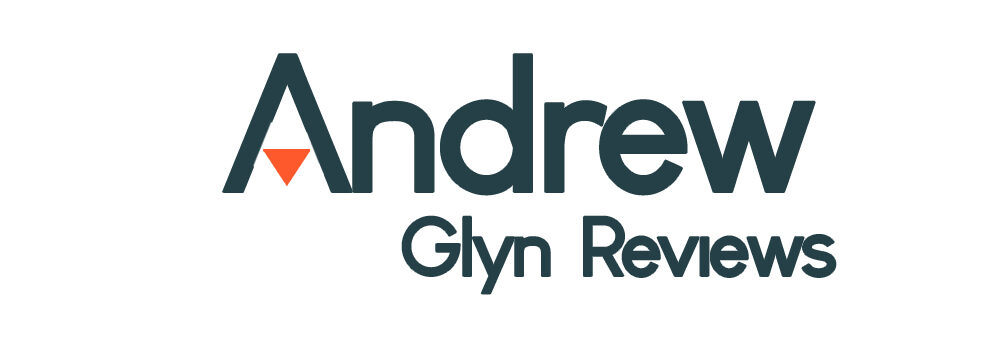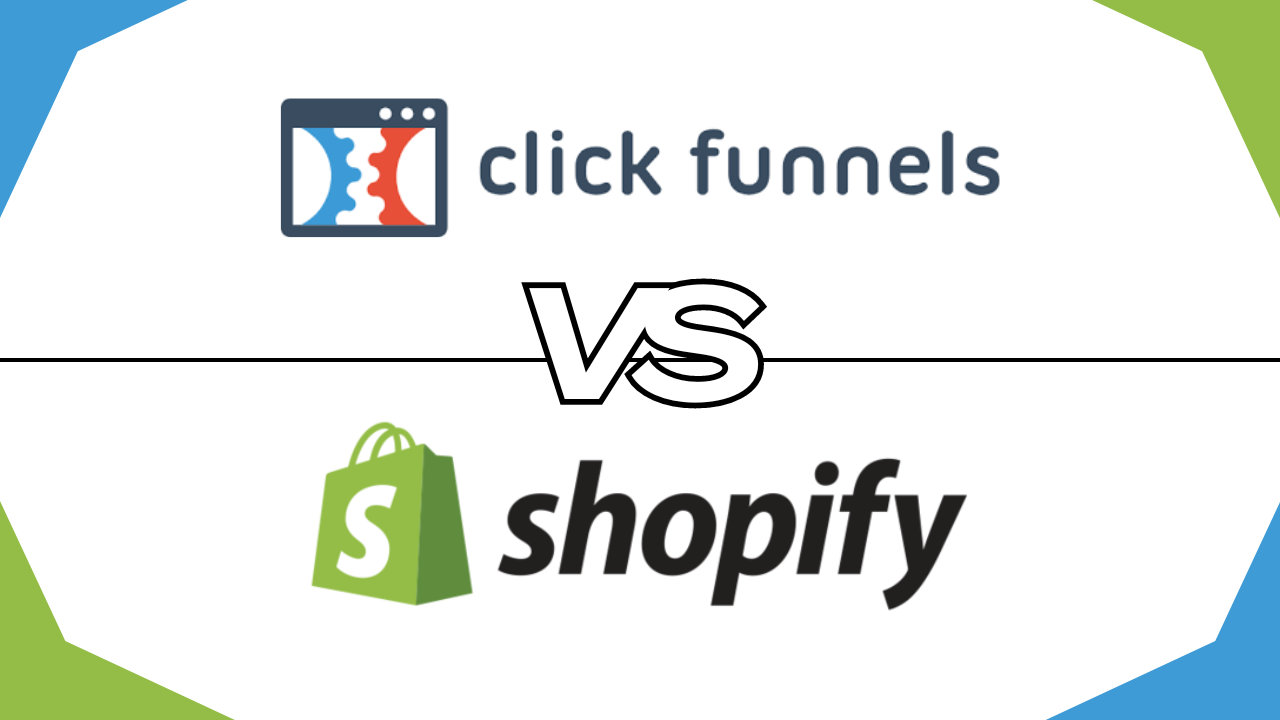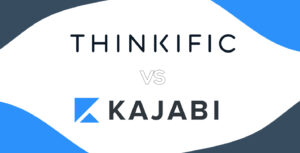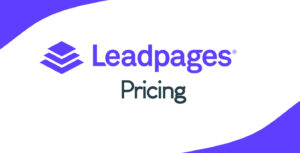
Deciding between Clickfunnels vs Shopify can be a crucial step in setting the foundation for your online business success. In this comprehensive blog post, we explore these two leading platforms, renowned in their respective domains of e-commerce and marketing funnel creation. Whether your goal is to master sales funnel optimization or to build and scale a robust online store, understanding the specific offerings and strengths of each platform is vital. We will delve into their features, pricing, ease of use, and other key factors, providing you with the insights needed to make an informed choice. Let’s dive into this detailed comparison to determine which platform aligns best with your business goals.
Table of Contents
Quick Comparison: Clickfunnels vs Shopify

Photo by Lukas Blazek
In the Clickfunnels vs Shopify comparison, key differences emerge in their focus and usability. Clickfunnels specializes in sales funnel creation and optimization, offering a streamlined, user-friendly platform ideal for marketers and businesses focused on conversion. Its drag-and-drop editor simplifies the funnel-building process. Conversely, Shopify serves a broader purpose as a comprehensive e-commerce platform, catering to businesses seeking to establish and scale an online store. It offers a wide array of store management tools, from inventory to payment processing, all within a user-friendly interface. While Clickfunnels excels in targeted marketing efficiency, Shopify provides an all-encompassing solution for diverse e-commerce needs.
Pricing Structure: Comparing Costs
When comparing Clickfunnels vs Shopify, it’s crucial to understand their distinct pricing structures to determine which suits your budget and business needs. Clickfunnels offers several tiered pricing plans, each escalating in features and cost, catering primarily to businesses focusing on sales funnels and marketing automation. In contrast, Shopify’s pricing model is also tiered but is designed to accommodate a broader range of e-commerce needs, from small startups to larger online stores. While both platforms provide basic to advanced functionalities, the key difference lies in their focus areas – Clickfunnels zeroes in on funnel building and Shopify on comprehensive e-commerce solutions.
Clickfunnels Pricing
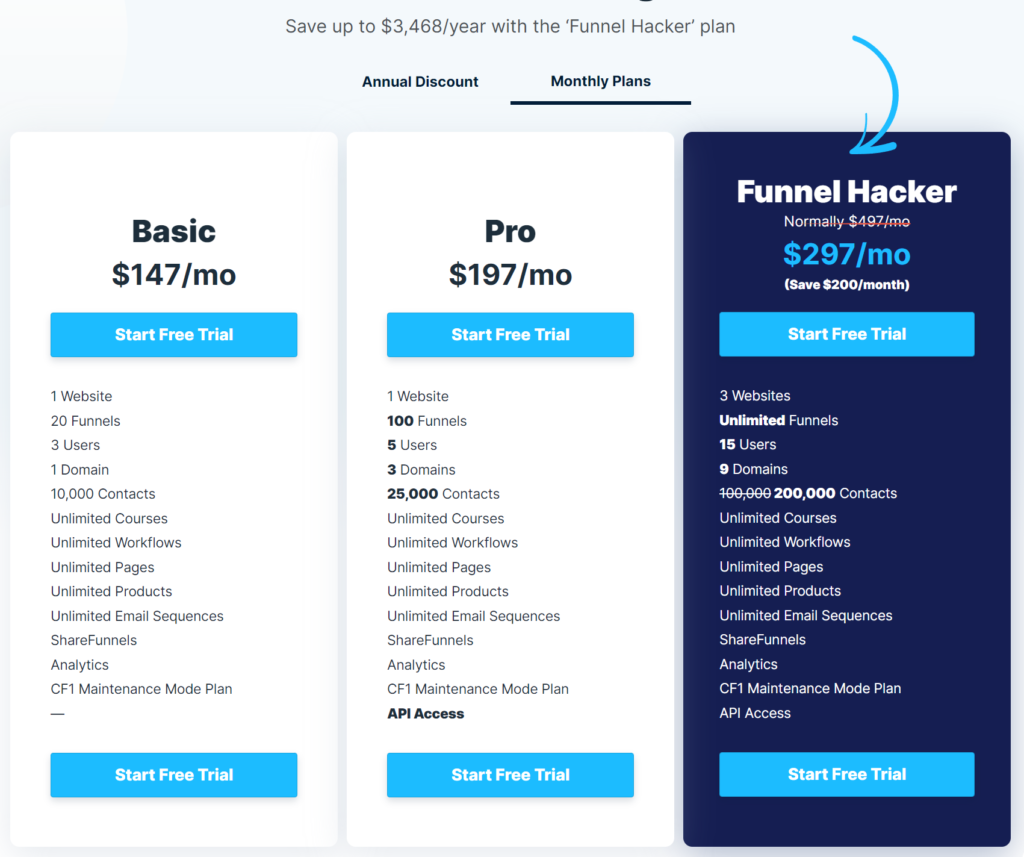
- In the comparison of Clickfunnels vs Shopify, understanding Clickfunnels pricing is essential. Clickfunnels offers a few pricing tiers designed to suit different business needs. The basic plan, often suitable for new entrepreneurs, starts at $147 per month, providing access to essential funnel-building tools. For more advanced features, including unlimited funnels and pages, their Funnel Hacker plan is priced at $297 per month. For larger enterprises or those needing more comprehensive solutions, Clickfunnels offers a TwoCommaClubX plan at $2,497 per month, which includes extensive training and support. Each tier is tailored to scale with your business growth, offering a range of tools and resources.
Shopify Pricing
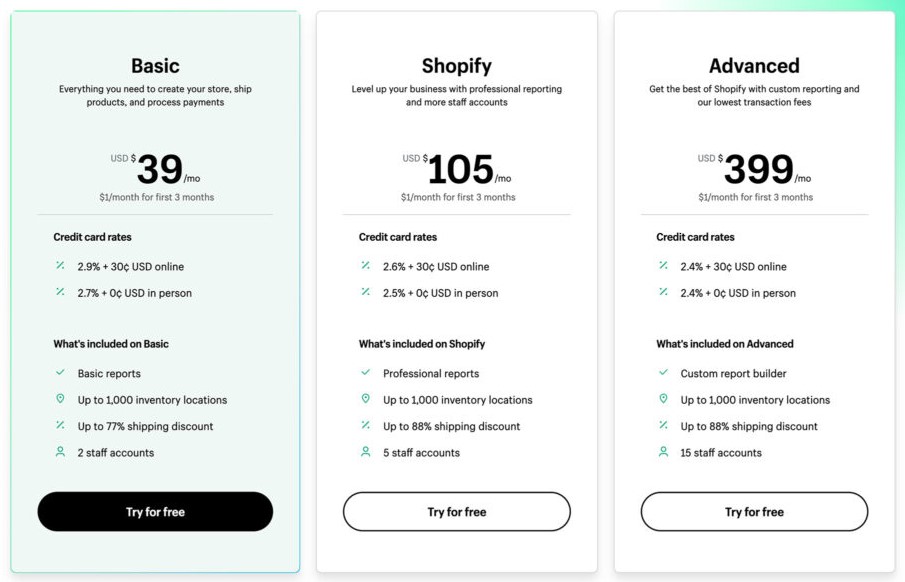
- In the context of Clickfunnels vs Shopify, Shopify’s pricing structure offers versatility for various business sizes. Starting with the Basic Shopify plan at $39 per month, users can access essential e-commerce features, ideal for new businesses. The standard Shopify plan, priced at $105 per month, includes additional features like professional reports and lower credit card rates, suitable for growing businesses. For established businesses, the Advanced Shopify plan at $399 per month offers advanced analytics and the best shipping rates. Each plan provides a comprehensive set of tools tailored to the evolving needs of online stores, making Shopify a scalable solution for e-commerce ventures.
Ease of Use: Which One Is Easier To Use?

Photo by Sincerely Media
When comparing Clickfunnels vs Shopify regarding ease of use, each platform offers unique advantages catering to different user needs. Clickfunnels is renowned for its straightforward, intuitive interface, especially in building and optimizing sales funnels, making it ideal for users without extensive technical backgrounds. It simplifies complex marketing strategies with user-friendly tools. Shopify, on the other hand, excels in providing a seamless experience for setting up and managing online stores. Its clean, intuitive dashboard and comprehensive setup guides are designed to assist even novices in creating a professional online presence, with little need for technical expertise. Both platforms balance simplicity with powerful features, albeit focusing on different aspects of online business.
Clickfunnels Ease of use
Renowned for its user-friendly interface, Clickfunnels stands out in its simplicity and intuitiveness. The platform is designed with a drag-and-drop editor, making the creation of sales funnels and landing pages straightforward. Users can easily select elements, add them to pages, and customize without needing extensive technical knowledge. This simplicity is a significant advantage for entrepreneurs and marketers who want to quickly set up effective sales funnels without a steep learning curve.
Shopify Ease of use
is renowned for its ease of setting up and managing an online store. It provides users with an intuitive dashboard, simple navigation, and a wide range of customizable templates, ensuring a smooth experience for building and operating an e-commerce site.
Both Clickfunnels and Shopify prioritize a user-friendly experience, but their focus areas – funnel creation in Clickfunnels and comprehensive online store management in Shopify – dictate their specific ease-of-use features.
Features: Which Has Better Features?

Photo by Muza
When comparing the features of Clickfunnels vs Shopify, it’s clear that each platform offers distinct functionalities tailored to different business needs. Clickfunnels excels in creating and optimizing sales funnels, offering features like customizable funnel templates, A/B testing, email autoresponders, and webinar hosting. These tools are specifically designed to enhance lead generation and conversion rates, making it a powerful asset for marketers and entrepreneurs focused on sales maximization.
In contrast, Shopify shines as a comprehensive e-commerce solution. It boasts a wide range of features including a versatile online store builder, extensive inventory management, multiple payment gateway options, and robust analytics for tracking sales and customer behavior. Shopify also offers a larger selection of themes and third-party app integrations, catering to businesses seeking a complete online retail presence.
Clickfunnels Features
Drag-and-Drop Funnel Builder: Allows easy creation of custom sales funnels.
A/B Testing: Facilitates testing different funnel stages for optimization.
Landing Page Creation: Offers a variety of templates for quick, effective page design.
Analytics and Reporting: Detailed insights into funnel performance, sales, and customer behavior
Customizable Funnel Templates: A variety of pre-built funnel templates tailored for different marketing goals.
Shopify Features
Online Store Builder: Easy-to-use drag-and-drop interface with a wide selection of customizable themes
Inventory Management: Robust tools to manage products, stock levels, and variations.
SEO & Marketing Tools: Built-in SEO features, along with marketing tools like product reviews, email marketing, and social media integration.
SEO & Marketing Tools: Built-in SEO features, along with marketing tools like product reviews, email marketing, and social media integration.
Mobile Optimization: Fully responsive designs and a free built-in mobile commerce shopping cart.
Customer Support: 24/7 support via live chat, email, and phone, along with a wealth of documentation and community forums.
Pros & Cons: Clickfunnels vs Shopify
In the Clickfunnels vs Shopify debate, each platform caters to different business aspects with distinct advantages and limitations. Clickfunnels is highly acclaimed for its efficient sales funnel creation and optimization, offering a user-friendly experience, especially for marketers and entrepreneurs focused on conversion-centric strategies. However, it may fall short for broader e-commerce needs and can be costlier for advanced features. Conversely, Shopify excels as an all-encompassing e-commerce solution, boasting a wide range of store management features and scalability, but it’s not as specialized in funnel building and might overwhelm beginners with its extensive functionalities.
Clickfunnels Pros:
User-Friendly Interface: Clickfunnels offers a straightforward drag-and-drop editor, making funnel creation easy for users of all skill levels.
Focused Funnel Building: Specializes in creating high-converting sales funnels, ideal for businesses centered on direct sales.
Integrated Marketing Tools: Combines funnel building with basic email marketing and affiliate management features.
A/B Testing Capabilities: Facilitates testing different elements of sales funnels for optimization.
Clickfunnels Cons:
Higher Price Point: Generally more expensive, especially for advanced features.
Limited Email Marketing Features: While it includes email functionalities, it’s not as comprehensive as dedicated email marketing tools.
Shopify Pros:
Comprehensive E-commerce Platform: Provides a broad range of features for building and managing online stores, including inventory, payments, and shipping.
Extensive App Marketplace: Offers a vast selection of plugins and apps to extend functionality.
Strong SEO and Marketing Tools: Includes built-in SEO features and marketing tools to enhance online presence.
Scalability: Well-suited for businesses of all sizes, easily scalable as the business grows
Shopify Cons:
Transaction Fees: Applies transaction fees unless using Shopify Payments.
Less Focus on Sales Funnels: While versatile in e-commerce, it’s not as focused on funnel building as Clickfunnels.
Can Be Overwhelming for Beginners: The breadth of features and options might be daunting for new users.
Alternatives
While “Clickfunnels vs Shopify” is a common comparison in the realm of digital marketing tools, there are several other alternatives in the market that cater to diverse business needs. Here’s an overview of some notable options:
Wix stands out as a user-friendly website builder, offering robust e-commerce capabilities ideal for small businesses and individual entrepreneurs. Its strength lies in simplifying website creation and providing extensive design flexibility, making it a popular choice for those looking to easily establish and personalize their online presence.
Leadpages is a popular alternative, primarily focused on landing page creation and lead generation. It’s user-friendly and cost-effective, making it suitable for small businesses and entrepreneurs who need efficient, straightforward landing page solutions.
Squarespace stands out with its sleek templates and intuitive design, making it an excellent choice for businesses prioritizing aesthetics and user-friendliness. While it offers basic e-commerce capabilities, Squarespace might not provide the extensive e-commerce or advanced funnel-building features found in more specialized platforms, making it ideal for simpler online presences.
Each of these alternatives offers unique strengths and could be more suited to specific business needs or preferences compared to Clickfunnels and Shopify.
Security and Reliability

Photo by Privecstasy
In assessing Clickfunnels vs Shopify, security and reliability are crucial factors for any online business. Clickfunnels prioritizes user data protection with regular updates and secure cloud-based hosting, ensuring a safe environment for sales funnels and customer information. It employs SSL encryption and is compliant with payment industry standards to safeguard transactions.
Conversely, Shopify, known for its robust e-commerce platform, places a strong emphasis on security. It offers SSL certification for all stores and ensures PCI compliance, essential for secure payment processing. Shopify’s infrastructure also provides high reliability, with 99.98% uptime, ensuring that online stores are consistently accessible to customers.
Both platforms demonstrate a strong commitment to security and reliability, but Shopify’s extensive e-commerce focus translates into a more comprehensive approach to these aspects, particularly in terms of transactional security and store uptime.
Clickfunnels Security
SSL Certification: Ensures that all pages created are HTTPS, providing a secure connection.
Regular Security Audits: Conducted to identify and rectify potential vulnerabilities.
Data Encryption: Sensitive data is encrypted, protecting it during transmission and storage.
Compliance with Regulations: Adheres to standards like GDPR, ensuring user data is handled responsibly.
Shopify Security
SSL Certification: Every Shopify store comes with a free 256-bit SSL certificate, ensuring all data is encrypted and secure.
Regular Updates: Shopify continuously updates its platform to address security vulnerabilities and stay ahead of potential threats.
24/7 Monitoring: Continuous monitoring of network and servers to detect and handle any security breaches swiftly.
Data Backup: Regular backups of store data to prevent loss in case of any unforeseen events.
Conclusion: Who is the Winner in Clickfunnels vs Shopify?
In the comparison of Clickfunnels vs Shopify, declaring a clear winner is not straightforward as it largely depends on your specific business needs. Clickfunnels excels in creating and optimizing sales funnels, making it a superior choice for businesses focused on marketing and lead conversions. Its user-friendly interface and targeted marketing tools are ideal for those who prioritize funnel strategies in their sales process.
On the other hand, Shopify stands out as a comprehensive e-commerce platform. It offers a more rounded solution for businesses looking to build and manage an online store, with extensive features for inventory management, payment processing, and scalability. Shopify’s robustness in e-commerce makes it a go-to for users seeking a full-fledged store with a wider array of functionalities.
In conclusion, the choice between Clickfunnels vs Shopify hinges on your primary business goals. If your focus is on creating effective sales funnels and marketing campaigns, Clickfunnels is your go-to. However, if you aim to establish and grow an online retail presence with a full suite of e-commerce tools, Shopify emerges as the more suitable option.
What is clickfunnels?
To learn more about Clickfunnels, we recommend that you read this Clickfunnels Review

Photo by Towfiqu barbhuiya
